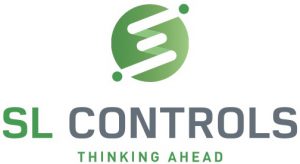Overview
 NEXT AVAILABLE COURSE: February 10th| PRICE: €1,550 per candidate. DURATION: 6 Days.
NEXT AVAILABLE COURSE: February 10th| PRICE: €1,550 per candidate. DURATION: 6 Days.
This training course provides the theoretical knowledge and practical skills needed for non-electricians to safely diagnose and repair faults in electrically-controlled production equipment and to communicate effectively with colleagues regarding electrical issues.
Who Should Attend:
This programme is esssential for anyone who works in or around electrically-controlled equipment. The training equips learners with the knowledge, skill, and competence to safely troubleshoot visually and through measurement. This training does not cover installation activities governed under Safe Electric.
More specifically the target learner group might include:
- Maintenance technicians, who are not craft electrically trained, who are troubleshooting electrically-controlled equipment visually and through measurement.
- Engineers who may benefit from a deeper understanding of electrical circuitry for testing and design.
- Facility Managers who are responsible for managing facilities and need to understand electrical safety to ensure legislative compliance and maintain a safe working environment.
- Technicians working in the renewable energy sector who require electrical training for working with renewable energy installations.
- Electricians who will benefit from upskilling their troubleshooting skills on industrial panels.
Why Should I attend?
Employers are increasingly looking for multiskilled technicians and this module enables non-electrical staff to safely diagnose faults on electrically controlled equipment.
Our Approach to Learning
With our unique, custom built training kits the learner will experience an immersive, hands-on experience to cultivate deep learning. This is applied learning designed so you understand the principles, construct circuit solutions, use a meter to verify and logically troubleshoot. Therefore, the learning process is designed to interweave theoretical knowledge with practical application via hands-on practise which simulates workplace scenarios. Building on a strong foundation of theory and safety learners construct their own circuits. These familiar circuits are then used as the basis for practicing logical troubleshooting.
Course Objectives
And the end of the course learners will be able to:
- Calculate and verify the values of voltage, current and/or resistance in series and parallel circuitry in both working and faulted states.
- Describe how electrical shock and arc flash incidents occur and list avoidance measures.
- Explain the operating principle and the circuit conditions causing activation of a range of circuit protection devices.
- With the aid of an electrical schematic, accurately construct and verify common control and safety circuits.
- Implement a logical and structured troubleshooting approach to diagnose faults in electrical circuits.
- Demonstrate best practise electrical workmanship in performing a range of cable terminations and routing for control panel applications.
Course Content
Electrical Fundamentals: What You’ll Learn
- Compare and contrast the properties of conductors and insulators.
- What is Voltage, Current and Resistance.
- Calculation and measurement in Series and Parallel Circuits.
- Open Circuit and Short circuit behaviour on simulators and built circuits.
- AC and DC power sources and their measurement and behaviour under fault conditions.
- Switchgear terminology. Identify wiring points on switchgear using terminal numbering system.
- Cable preparation and termination using ferrules.
Electrical Safety: What You’ll Learn
- Earthing Systems explained.
- Shock factors and shock pathways.
- Physiology of shock including muscle spasm, ventricular/defibrillation, burns.
- Arc Flash Hazards
- Electrical Hazard awareness
- Isolation and Verification as part of LOTO.
- Circuit Protection devices
Hands-on circuit Construction and Troubleshooting: What You’ll Learn
- Construct and test circuits using common components including safety relays.
- Apply a systematic approach to troubleshooting faults.
- Use a multi-meter competently to narrow to a fault area.
- Build and test relay latching circuits.
- Use the correct terminology and recognise switchgear poles based on their universal numbering system.
- Wire, test and troubleshoot safety relays
Navigation of Electrical Schematics: What You’ll Learn
- Use schematics to see how power is distributed from 3ph to 1ph to DC to safety circuits.
- Interpret symbols and skilfully navigate your way on both US and EU drawings.
- How to use electrical schematics to effectively troubleshoot
Logical Troubleshooting: What You’ll Learn
- Troubleshoot circuits you have constructed with instructor injected faults
- Troubleshoot Safety Relay Circuits
- Practice Troubleshooting on training kits and with simulators.
COURSE DELIVERY
- The course is delivered over 6 instructor led days. There are self directed hours to be completed before the course starts, between course days and before exams.
- Course days are scheduled over 3 weeks to enable sufficient time for self directed learning.
- Maximum group size of 10 to ensure individual attention and pace can be adjusted to learner needs
- Highly qualified and experienced trainers.
- Courseware includes quizzes and interactive learning materials and workbooks for practical exercises and revision
- Students will need a laptop or tablet to complete the course. Technotraining may be able to provide a laptop for the duration of the course, depending on availability
QQI Assessment
- Theory Examinations. 50% of overall mark
- Practical Examinations. 50% of overall mark
- The pass mark for all Theory assessments is 60%
QQI Accreditation and Progression
- 6N22480 QQI Level 6 Minor award in Electrical Safety, Circuitry & Troubleshooting
- This Award is one component required for the Advanced Certificate in Industrial Automation Technology 6M25693
Entry Requirements
No previous formal qualification is required but learners should have relevant work or life experience to have reached the standards of knowledge, skill and competence associated with Level 5 of the National Framework of Qualifications.
Though no specific qualification is required entrants should have some prior technical or mechanical experience or aptitude.
Competence in written and spoken English is essential. International students whose first language is not English are required to have an appropriate score in an approved examination in English language. We accept an IELTS test score of 6. We also accept IELTS equivalents such as TOELF, Cambridge exams and Duolingo English Test.
Learners should have good computer literacy skills. Self-directed learning also requires learners to have good self motivation and time management skills. Again, further details and tips can be found in the Learner Handbook. You will be required to have a laptop computer.
RPL is a process whereby a learner with prior qualifications and/or relevant work experience may apply to exemptions from attending the full course. Note learners will still need to pass assessments. You will be asked to submit an application form for RPL and will be required to provide proof of qualification. RPL requirements are different for different courses and awards.
When we receive your booking request we will call you to go through an enrolment checklist with you to ensure that you meet all entry requirements for the course you have selected.
If you have any questions before making a booking request, we’d love to hear from you.
This course is funded by the Engineering Skillnet
Please contact Fiona Fennell [email protected] for further details







































